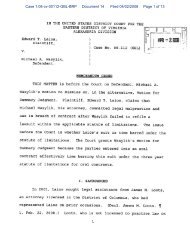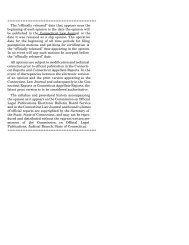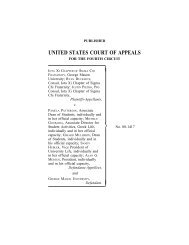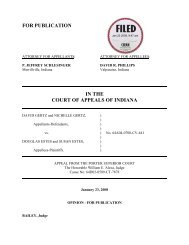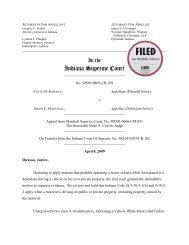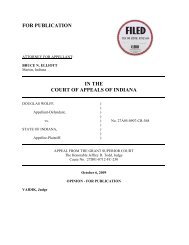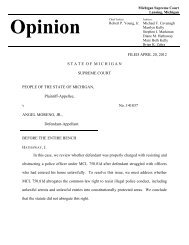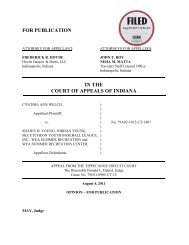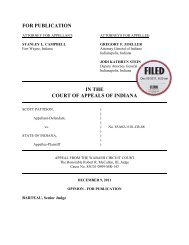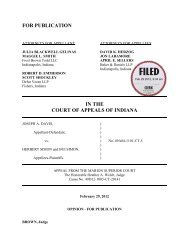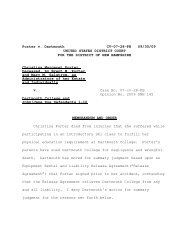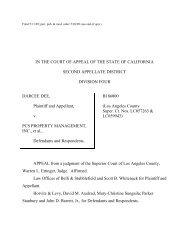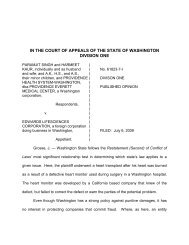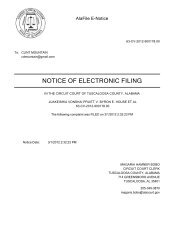PRECEDENTIAL UNITED STATES COURT OF APPEALS FOR THE ...
PRECEDENTIAL UNITED STATES COURT OF APPEALS FOR THE ...
PRECEDENTIAL UNITED STATES COURT OF APPEALS FOR THE ...
Create successful ePaper yourself
Turn your PDF publications into a flip-book with our unique Google optimized e-Paper software.
preclude equitable tolling as it did in the FCRA. We reach this<br />
conclusion because Congress structured the two statutes<br />
differently. Thus, while Congress placed the FCRA’s exception<br />
to the limitations provision within the same sentence as the<br />
general limitations provision connected by “except,” 15 U.S.C.<br />
§ 1681p (1994 ed.), in contrast it placed the FTCA’s savings<br />
clause providing that certain claims filed within two years with<br />
the wrong agency are timely in a section distinct from the<br />
limitations provision. 28 U.S.C. §§ 2679(d)(5); 2401(b). The<br />
placement of the separate statutory savings provision does not<br />
suggest that Congress intended it to preclude equitable tolling,<br />
which the Supreme Court has presumed and held to apply in<br />
actions against the United States, Irwin, 498 U.S. at 95-96, 111<br />
S.Ct. at 458; see also Hughes, 263 F.3d at 278; Hedges, 404<br />
F.3d at 748; Ingram, 443 F.3d at 960-61, particularly in an area<br />
of law where equitable concerns may be greater. TRW, 534<br />
U.S. at 27, 122 S.Ct. at 446-47 (distinguishing claim in that<br />
case, private action against a credit agency under FCRA, from<br />
medical malpractice claims).<br />
The Government also argues that equitably tolling the<br />
statute of limitations would render the FTCA’s savings clause<br />
“insignificant, if not wholly superfluous.” See id. at 31, 122<br />
S.Ct. at 449. But we reject this argument because the savings<br />
clause is applicable in cases in which equitable tolling would not<br />
be. For example, the FTCA’s savings clause lacks any due<br />
diligence requirement and thus encompasses a “garden-variety<br />
claim of excusable neglect,” a situation in which equitable<br />
tolling would not apply. See Irwin, 498 U.S. at 96, 111 S.Ct. at<br />
458.<br />
16



